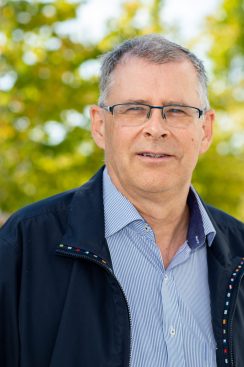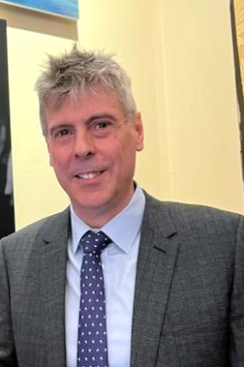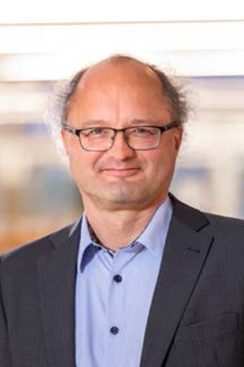Plenary Speakers
Prof. Amanda Bryant-Friedrich
Dean of the Graduate School and Professor of Pharmaceutical Sciences at Wayne State University, Detroit, Michigan, USA
Dr. Amanda Bryant-Friedrich is Dean of the Graduate School and Professor of Pharmaceutical Sciences at Wayne State University, Detroit, Michigan, USA. She obtained her doctorate in Pharmaceutical Chemistry at the Ruprecht-Karls Universität Heidelberg, Heidelberg, Germany under Professor Richard Neidlein followed by postdoctoral training at the Universität Basel, Basel, Switzerland, under Professor Bernd Giese. She is a Fellow of the American Association for the Advancement of Science, The American Chemical Society and an Academic Leadership Fellow of the American Association of Colleges of Pharmacy. Her research interest center around the development of tools to investigate processes and treat diseases related to nucleic acids and their metabolism.


Prof. Mags Blackie
Associate Director of the Centre for Advancing Undergraduate Science Education at Virginia Tech., USA
Prof Mags Blackie is the Associate Director of the Centre for Advancing Undergraduate Science Education at Virginia Tech. She holds PhD in chemistry from the University of Cape Town and a PhD in education from Stellenbosch University. She began her career as an organic chemist at Stellenbosch University where she balanced medicinal chemistry research and education research. In 2022 she pivoted to education research and joined the Centre for Higher Education Research, Teaching and Learning at Rhodes University.
Prof. Christian W. Klampfl
Head of the Institute of Analytical and General Chemistry at the Johannes Kepler University in Linz Innsbruck, Austria
Christian W. Klampfl obtained his Ph.D. from University of Innsbruck/Austria in 1993. 1999-2000 he worked as a research associate at the University of Hobart/Tasmania in the group of Prof. Paul Haddad. His main research areas are the use of hyphenated techniques in environmental, clinical and polymer analysis. Prof. Klampfl has published more than 140 papers and book chapters. He is currently serving as deputy editor for Electrophoresis (Wiley) and Chemistry Monthly (Springer). Currently CW Klampfl is head of the Institute of Analytical and General Chemistry at the Johannes Kepler University in Linz and president of the Austrian Society of Analytical Chemistry (ASAC).


Prof. Greg Scholes
William S. Tod Professor of Chemistry at Princeton University, USA
Greg Scholes is the William S. Tod Professor of Chemistry at Princeton University. Originally from Melbourne, Australia, he later undertook postdoctoral training at Imperial College London and University of California Berkeley. He started his independent career at the University of Toronto (2000-2014) where he was the D.J. LeRoy Distinguished Professor. He was appointed Editor-in-Chief of the Journal of Physical Chemistry Letters in 2019. Dr. Scholes was elected a Fellow of the Royal Society (London) in 2019 and a Fellow of the Royal Society of Canada in 2009. He served as Chair of Department at Princeton 2020-2023 and Director of an Energy Frontier Research Center (BioLEC) since 2018.
Prof. Peter Wasserscheid
Head: Institute for Chemical Reaction Engineering at Friedrich-Alexander University Erlangen-Nurnberg, and Director: Forschungszentrum Julich.
Peter Wasserscheid is Head of the Institute for Chemical Reaction Engineering at Friedrich-Alexander University Erlangen-Nürnberg (FAU) and Director at Forschungszentrum Jülich. He studied chemistry at RWTH Aachen University and obtained his doctorate there in 1998. After a six-month research stay as an industrial postdoc at BP Chemicals in Sunbury (UK), he returned to RWTH Aachen University to complete his habilitation. In 2003, he took up his current position at FAU, and in 2014 he added the role of founding director and later director at the Helmholtz Institute Erlangen-Nürnberg for Renewable Energy. Peter Wasserscheid has also been a member of the board of the Hydrogen Center Bavaria since 2020 and spokesperson for the Helmholtz Cluster for a Sustainable and Infrastructure-Compatible Hydrogen Economy (HC-H2) since 2021. Since May 2025, he has also headed the “Reaction Engineering for Chemical Hydrogen Storage” division at the Institute for Sustainable Hydrogen Economy (INW) at Forschungszentrum Jülich

